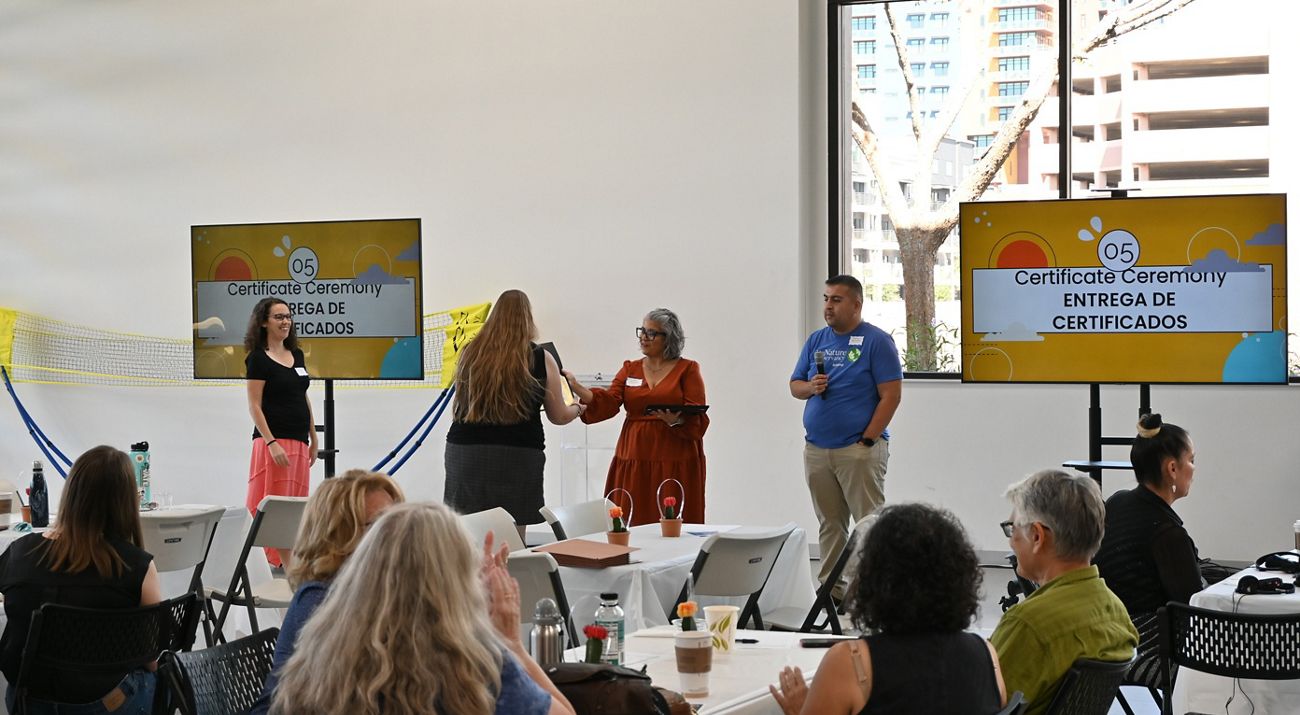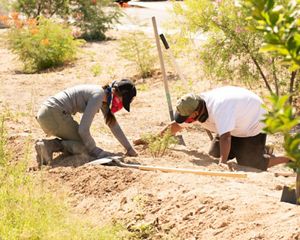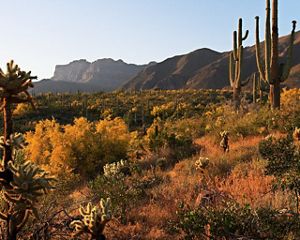
Media Contacts
-
Lena Rueck
Media Relations
Phone: 801-822-7990
Email: lena.rueck@tnc.org
Applications are now open for The Nature Conservancy’s 2025 Urban Heat Leadership Academy. The Academy aims to equip residents with the knowledge, resources and skills needed to advocate for and mobilize their communities towards greener, healthier and cooler environments. It is available to Maricopa County residents over the age of 18 and offered in both Spanish and English.
Urban heat is a major public health concern in Greater Phoenix, where 65% of the population of Arizona live. The extreme heat in the Phoenix area is projected to worsen over time, with the number of days above 110°F expected to more than double by 2060.
"Heat doesn't impact all communities equally. In Phoenix, there can be a 13-degree Fahrenheit difference between neighborhoods just two miles apart. This disparity exists because low-income communities often have fewer trees and more heat-absorbing surfaces like asphalt and concrete, making them more vulnerable to extreme temperatures,” said Amy Scoville-Weaver, TNC's Healthy Cities Program Director in Arizona.
“The Urban Heat Leadership Academy is crucial because it equips residents with the tools and knowledge to combat these rising temperatures and create more resilient communities."
The Academy begins in person on Saturday, June 7, and spans nine Saturdays, concluding in October 2025. It offers a hybrid learning format, allowing participants to progress at their own pace through self-paced online lessons and participate in virtual discussions via Zoom. Upon completion, participants can attend an in-person graduation ceremony and join a practical learning program to utilize their skills in tree planting or other hands-on heat mitigation projects.
Participants will learn from and interact with city leaders, academics and non-profit experts in sustainability and advocacy to learn more the challenges of heat in Phoenix and available solutions. Additionally, participants will develop skills in advocacy, storytelling and community engagement, and receive resources to take meaningful action.
Since the program’s Arizona launch in 2021, over 120 people have graduated from the Urban Heat Leadership Academy. Many graduates of the Academy have teamed up to implement projects to mitigate heat in their communities. These practices include community greenings at private residences, Grant Park Community Garden and Capitol Elementary School; neighborhood plant giveaways; and the opening of a cooling center in Phoenix to combat the effects of urban heat. And for many, the reasons are also personal.
“Taking the Urban Heat Academy classes was an invaluable experience that deepened my understanding of extreme heat challenges and solutions,” said Diana Apresa, a former UHLA graduate. “The program equipped me with the knowledge and tools to take meaningful action in my own community. Through these classes, I was able to develop and implement projects that address pressing heat-related issues, such as increasing tree canopy and sustainable cooling solutions. I am grateful for the opportunity to learn, connect, and make a lasting impact where it’s needed most.”
The deadline to enroll in the academy is May 7, 2025. Learn more about Arizona’s Healthy Cities program and the Urban Heat Leadership Academy.
The Nature Conservancy is a global conservation organization dedicated to conserving the lands and waters on which all life depends. Guided by science, we create innovative, on-the-ground solutions to our world’s toughest challenges so that nature and people can thrive together. We are tackling climate change, conserving lands, waters and oceans at an unprecedented scale, providing food and water sustainably and helping make cities more resilient. The Nature Conservancy is working to make a lasting difference around the world in 83 countries and territories (39 by direct conservation impact and 44 through partners) through a collaborative approach that engages local communities, governments, the private sector, and other partners. For more news, visit our newsroom or follow The Nature Conservancy on LinkedIn.


